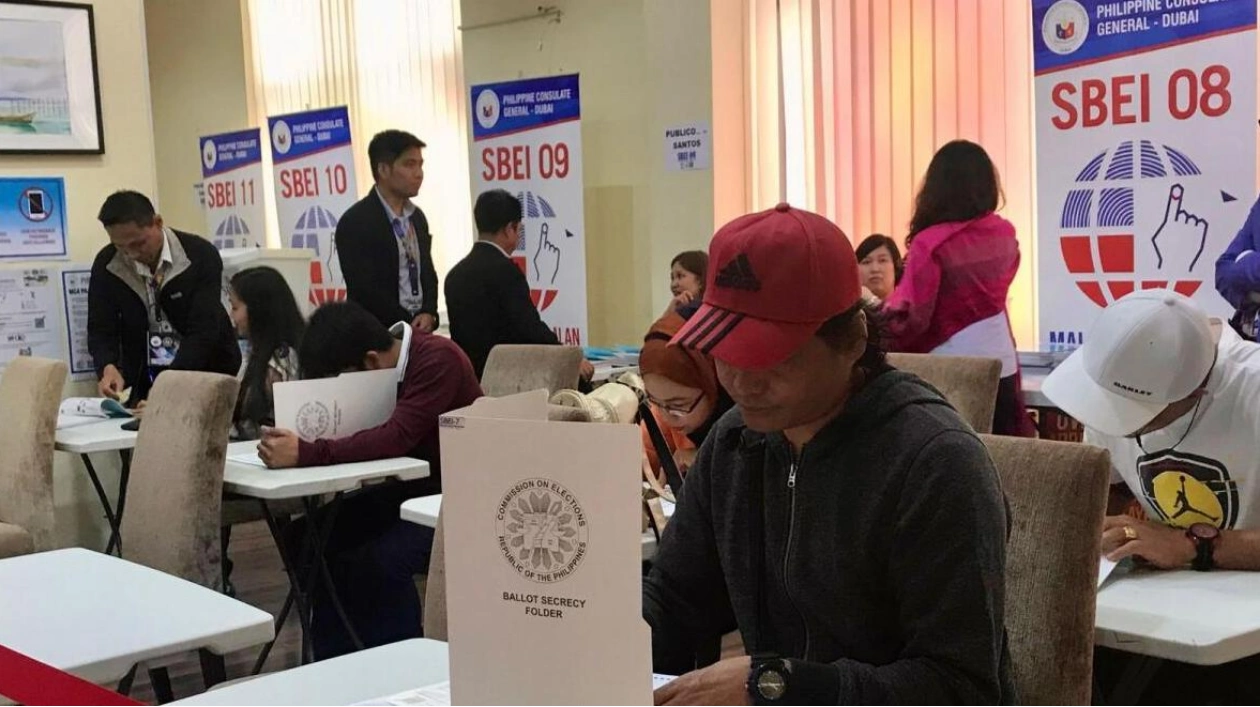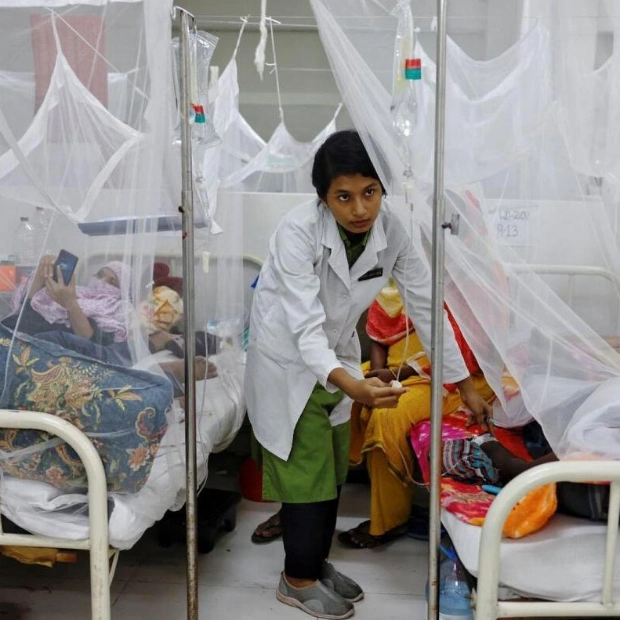KT File Photo: Angel Tesorero
More Filipinos in the UAE are anticipated to participate in the Philippine midterm elections in May next year with the introduction of online voting, a first for the community. This was shared by community leaders, migrant workers advocates, and academicians in a conversation with Khaleej Times. They also urged the Philippine government to mobilize all resources to ensure the integrity and security of the polls. The announcement of internet voting for the upcoming elections was made by the Philippine missions in the UAE on Wednesday. This development allows voters to cast their ballots using laptops, tablets, or mobile phones, eliminating the need for paper ballots. Registered overseas Filipino voters will choose 12 senators and a party-list representative, but they must pre-enroll on the Commission on Elections’ voting portal starting February 27, 2025, to be eligible for online voting. In case of any issues, physical voting can still be done at the Philippine Embassy in Abu Dhabi or the Consulate-General in Dubai, where automated counting machines will be in place.
Dubai-based migrant rights advocate Barney Almazar described the introduction of online voting for overseas Filipinos as “a significant advancement in ensuring broader democratic participation in Philippine elections.” He added, “As an overseas voter for the last three Philippine elections, I see the new system addressing long-standing challenges like accessibility and convenience, which have historically hindered overseas voters.” Almazar, who is also director at Gulf Law in the UAE, Philippines, UK, Portugal, and USA, noted that in Dubai, there is a large population of over 450,000 Filipino voters, but historically, only a small percentage have participated in overseas voting. In the 2019 midterm elections, less than 30 per cent of registered overseas voters from the Middle East cast their ballots, reflecting the barriers to participation. With the introduction of online voting, this trend can be reversed by offering a more accessible platform, especially for those away from the polling precincts.
Rex Bacarra, Ph.D., a university professor of Philosophy and Ethics based in Abu Dhabi, expects that more overseas Filipinos will vote in the upcoming elections now that voting is available online. He added, “The convenience of being able to vote anywhere and anytime makes the process more accessible. This is particularly appealing to Filipinos in the UAE who have busy schedules and for those who live far from polling centres. With easier and more convenient access, a larger voter turnout from the Filipino community, not just in the UAE, but in other parts of the world, is expected.” However, Bacarra also raised concerns about security breaches, stating, “With online voting, concerns about security breaches and potential manipulation or hacking – especially in the age of cybersecurity threats – are not just real but significant. This is why it should be thoroughly researched and carefully studied before being fully implemented. This is not just a concern about convenience or increased participation, but it is also, and perhaps primarily, an ethical concern.”
For Filipino Social Club president Ericson Reyes, “the shift to online voting for the 2025 midterm elections is a significant move towards ensuring that more Filipinos can participate in shaping our nation’s future, without the inconvenience of long queues. However, this convenience mustn't come at the expense of security. The integrity of the voting process is highly important, and data protection must be a priority.” Ronald Gamiao, president of Filipino Nurses Association in Emirates, who has been participating in three Philippine overseas elections since 2016, is confident that “safeguards are in place for the overseas online voting in 2025.” Community leader Josie Conlu reiterated, “Online voting can significantly enhance the accessibility and convenience of the electoral process for Filipinos. It allows voters to participate from anywhere. It reduces long queues at polling stations, and can lead to higher voter turnout. Additionally, it can streamline the counting process and improve the overall efficiency of elections.” JP Cosico, marketing executive at Global Thinker Publishing & Mktg House, shared the same optimism, noting, “Overseas voters will definitely prefer to do online voting because aside from convenience, they will have ample time to think about the right candidate and decide who must be rightfully elected.”
For David Sanchez, coordinator of Migrante Middle East, the elections – whether online or in-person – must address the “urgent concerns and promote the rights and welfare of Filipino migrant workers.” He noted, “The issue of Philippine labour migration which historically began in the early 1900s, when the first group of Filipino migrants arrived in the US to work in farms, fisheries and restaurants, must be a focal point in the discussion of overseas Filipinos.” Sanchez added, “We must look at why millions of Filipinos continue to find work abroad to improve their own socio-economic situations back home. We must elect Philippine government officials who will protect Filipinos migrant workers across the world.”
The UAE is consistently among the top five countries and territories with the highest turnout of Filipino voters every election. The others are Saudi Arabia, US, Singapore, and Hong Kong. During the presidential elections back in May 2022, Dubai saw a total of 60,393 Filipino expats who cast their votes at the Philippine Consulate General (PCG) – the highest number of overseas voters among Philippine foreign service posts all over the world since overseas voting began in 2004. The PCG then said the number accounted for 31.49 per cent of the 191,779 registered voters in Dubai and the Northern Emirates. It was higher than the turnout during the 2016 presidential election, where a total of 37,950 or 30.8 percent of the 122,953 registered voters cast their ballot at the PCG in Dubai.
Source link: https://www.khaleejtimes.com






